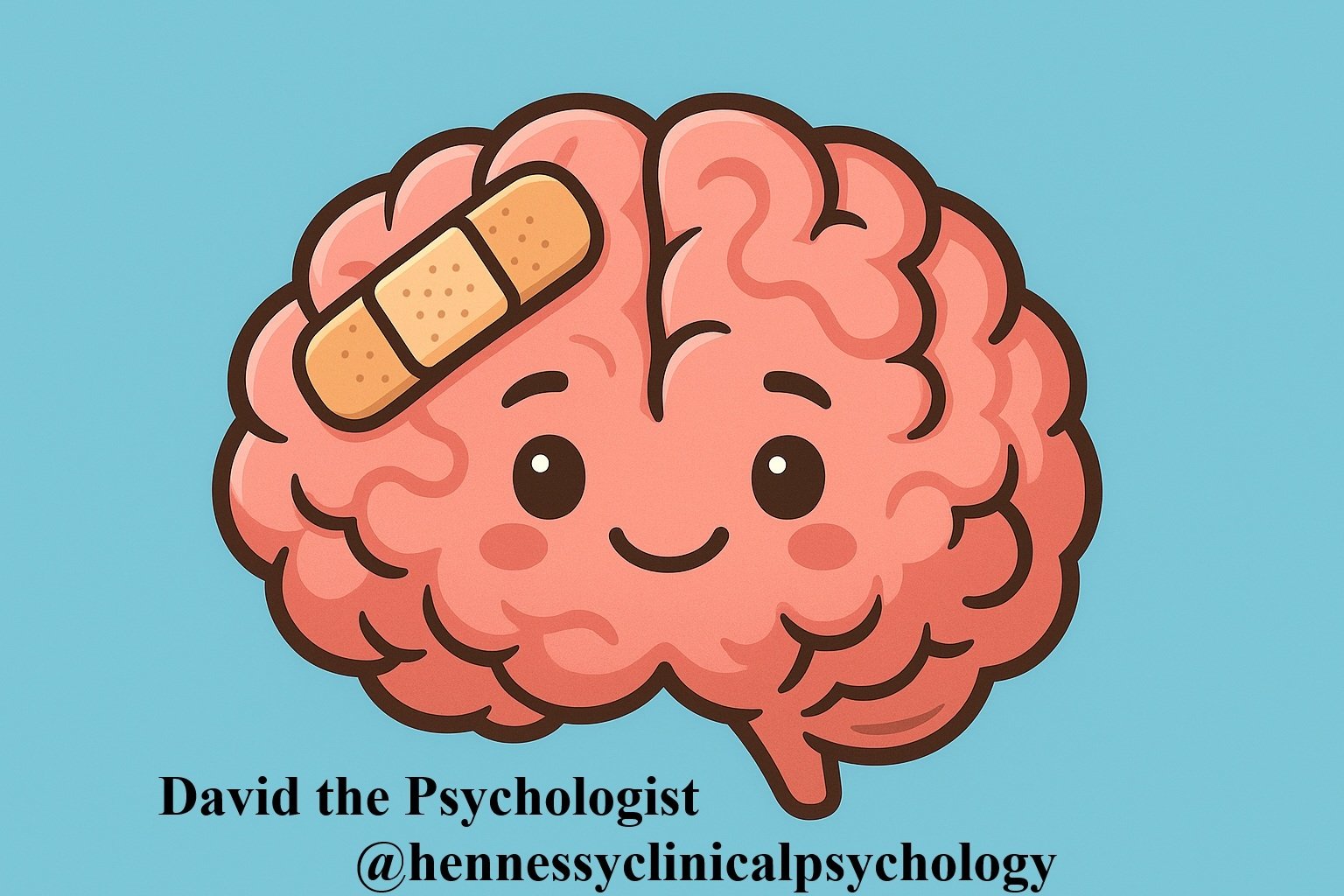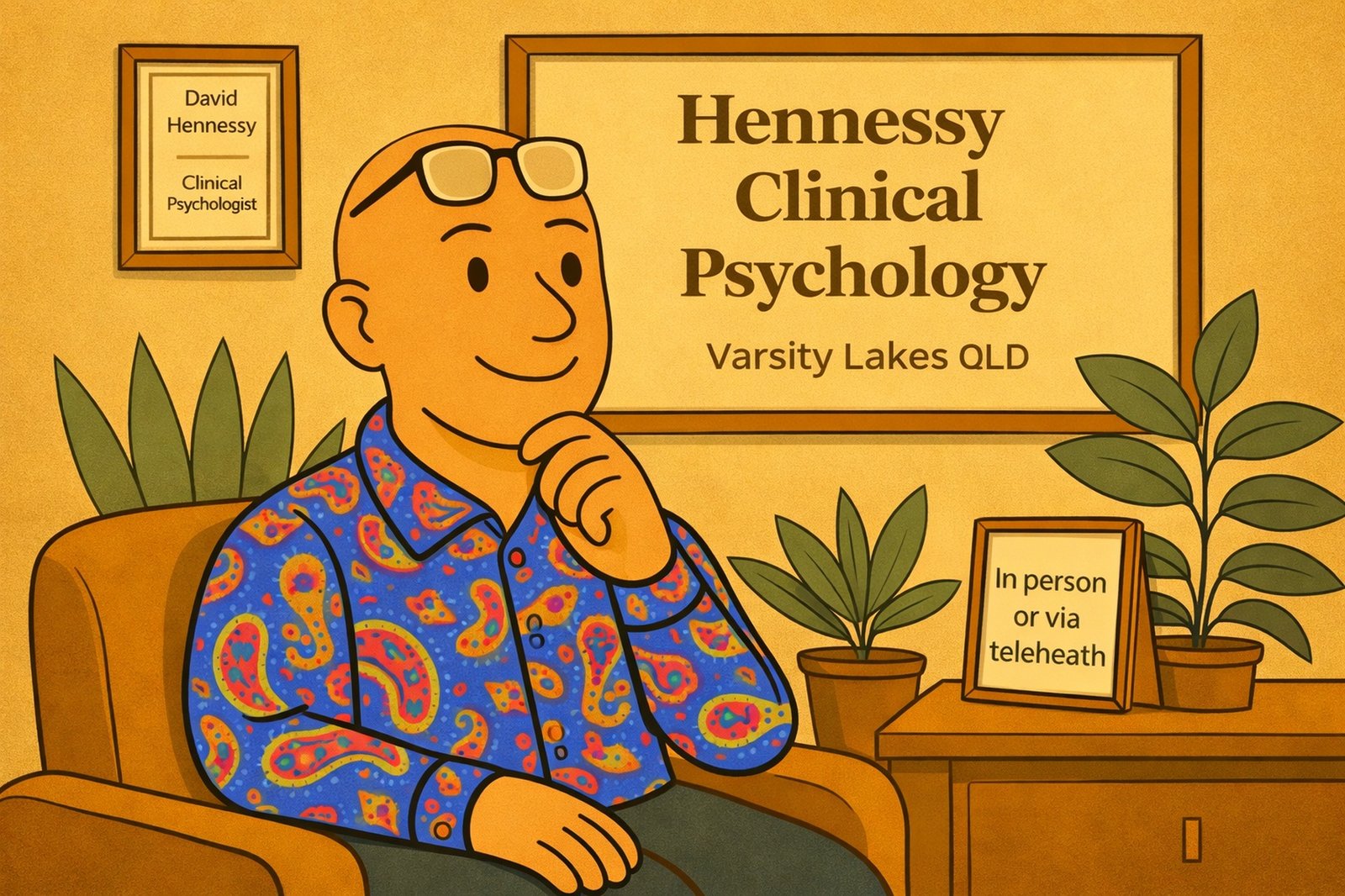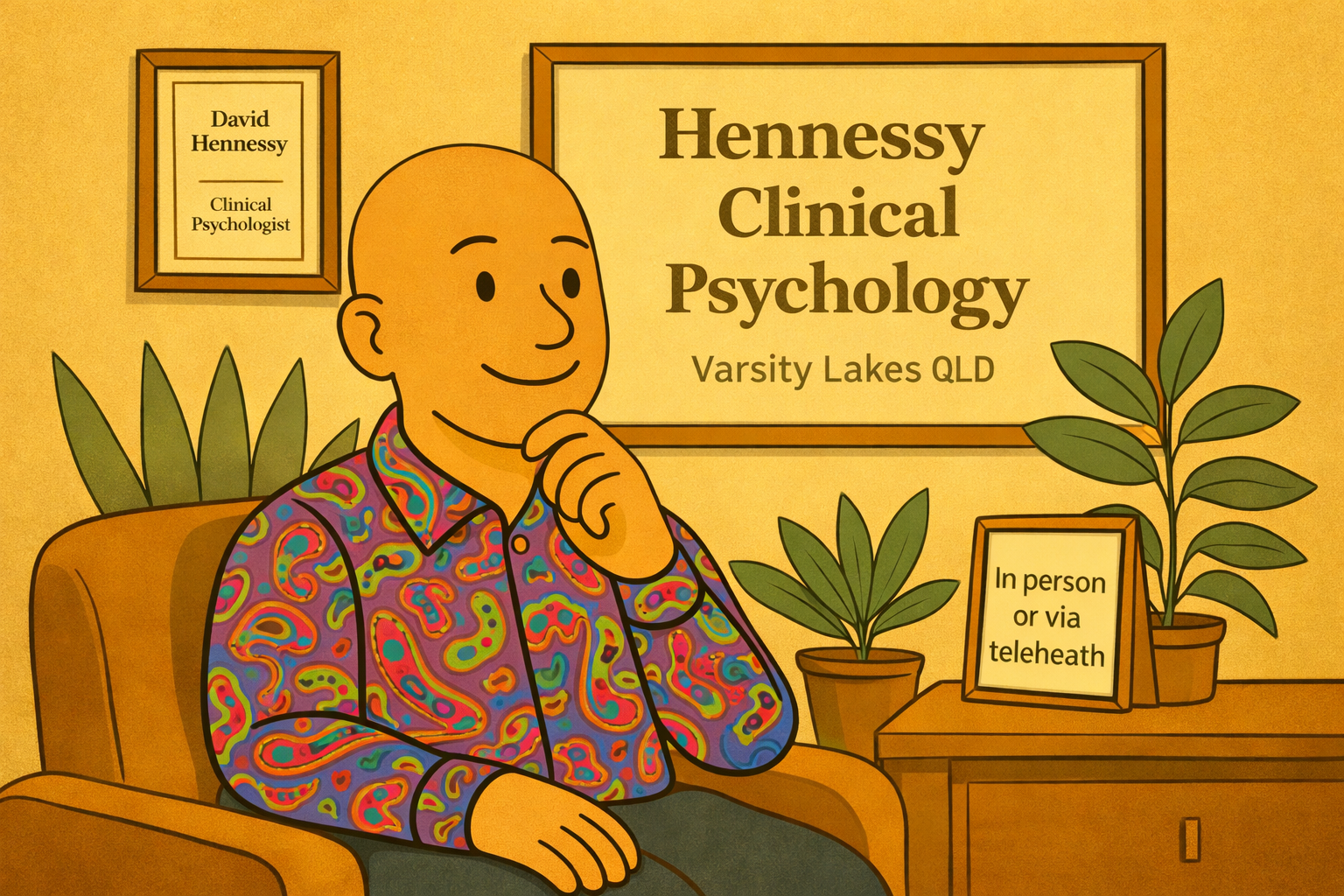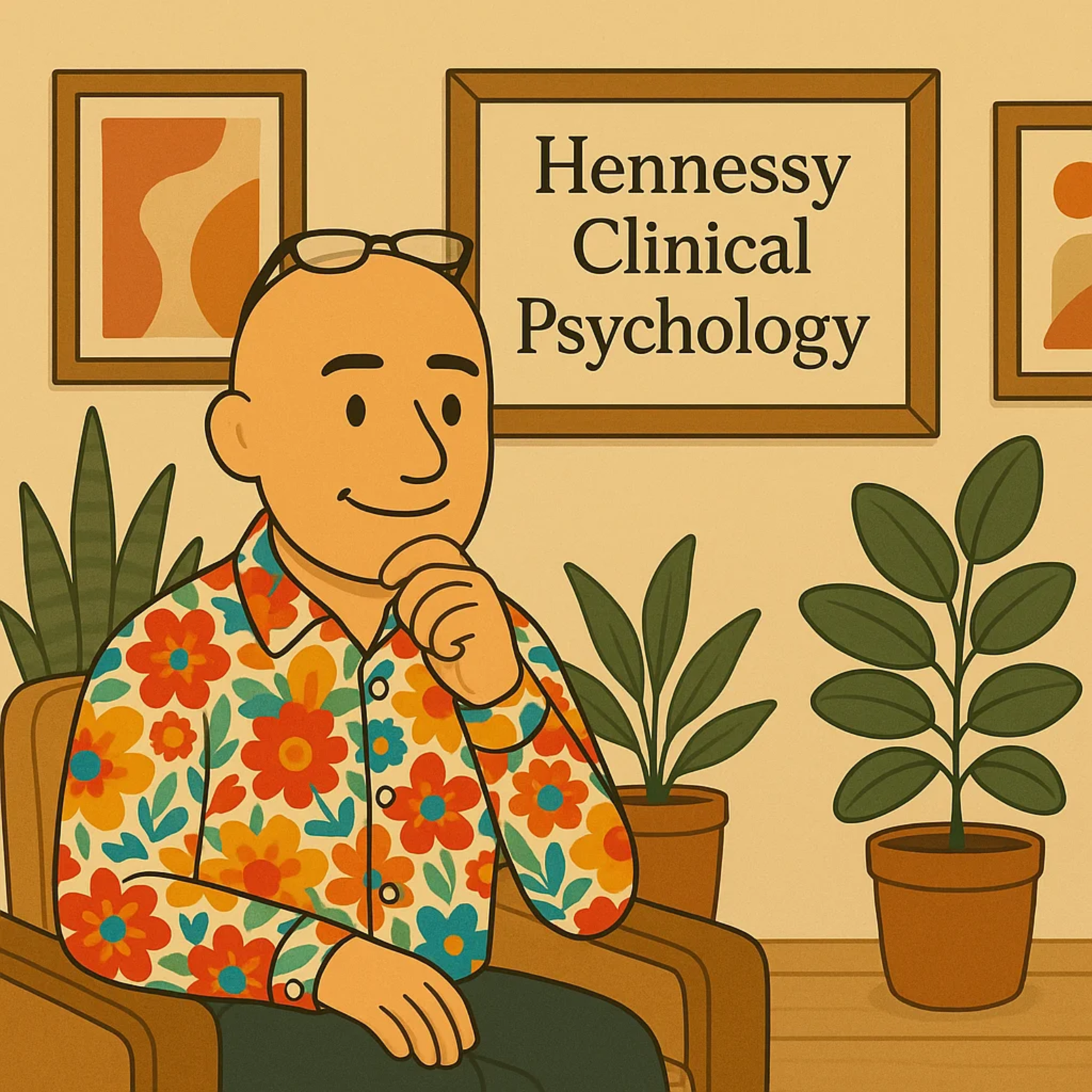What Is an Acquired Brain Injury (ABI)?
By David Hennessy, Clinical Psychologist

Understanding ABI
An Acquired Brain Injury (ABI) refers to any damage to the brain that occurs after birth and is not related to a congenital or degenerative condition. It may result from trauma, stroke, infection, oxygen deprivation, or substance misuse. The effects of an ABI vary depending on the cause, the brain region involved, the severity of damage, and the person’s context [1][2].
ABI can be sudden or gradual, mild or severe, and can impact many areas of life, including:
-
Cognition (memory, attention, executive functioning)
-
Emotion and mood
-
Personality and behaviour
-
Physical functioning
-
Fatigue and energy
-
Communication and relationships
ABI is often referred to as a silent disability. People may appear outwardly well while quietly managing internal challenges that affect their thinking, emotions, and behaviour [3][4].
Common Causes of ABI
-
Traumatic Brain Injury (TBI): from falls, accidents, sports, or assaults [1][4]
-
Stroke: interruption or bleeding of brain blood supply [4]
-
Hypoxic or Anoxic Injury: lack of oxygen due to cardiac arrest, drowning, or respiratory failure [5]
-
Infections: such as meningitis or encephalitis [5]
-
Brain tumours or brain surgery [5]
-
Long term substance use [5]
Degenerative conditions like Parkinson’s disease or Alzheimer’s are not classified as ABI.
Psychological and Emotional Impact
ABI frequently affects mood, identity, and emotional wellbeing. These effects can be harder to manage than physical symptoms.
-
Around 27 percent of people with moderate to severe TBI experience clinical depression within six months of injury [6]
-
Depression rates may rise to 40 percent or more over time [7]
-
Anxiety, irritability, impulsivity, and emotional dysregulation are also common [8]
These changes are understandable responses to disruption in the brain and in life.
How Psychology Can Help
Evidence shows that integrated cognitive and psychological interventions lead to better outcomes [4][9].
Psychological therapy can support people to:
-
Adjust to changes in thinking and memory
-
Manage mood and emotional reactions
-
Process identity shifts or grief
-
Strengthen communication and connection
-
Rebuild purpose, structure, and meaningful activity
Therapy can also assist families and carers to navigate relational changes and support strategies.
My Focus: Psychological Support for ABI
At Hennessy Clinical Psychology, my focus is on the psychological and emotional experience of ABI.
Many people tell me that it is not just the injury itself, but the emotional changes that feel most difficult. Shifts in mood, motivation, and identity can be unsettling and hard to explain to others. These internal changes affect how people see themselves, relate to loved ones, and navigate their place in the world.
In my work with ABI clients, I support people to:
-
Understand emotional and cognitive changes
-
Build structure and self-awareness
-
Process confusion, anger, and loss
-
Reconnect with others
-
Rebuild a sense of identity and purpose
This support is often most helpful over time. It may begin during rehabilitation or return months or years later as life continues to evolve.
You Are Not Alone
Much of ABI recovery is about adjusting to changes and finding ways to get back to engaging in life in a way that is workable, meaningful, and connected.
You are not alone. With time, compassion, and the right support, it is possible to live well after ABI.
Enquiries / Appointments
To explore support for yourself or someone you care about:
Contact Hennessy Clinical Psychology
References
-
Synapse. (2016). ABI: The Facts. https://synapse.org.au/wp-content/uploads/2019/11/ABI_-The-Facts-2016.pdf
-
Brain Injury Australia. (2024). What is ABI? https://www.braininjuryaustralia.org.au/
-
Norman, A. et al. (2023). Experiences of individuals with acquired brain injury and related psychosocial issues: A qualitative review. Disability and Rehabilitation, 45(15), 2367–2379. https://doi.org/10.1080/09638288.2022.2043465
-
Julien, A. et al. (2023). Combined cognitive and psychological interventions improve meaningful outcomes after acquired brain injury: A systematic review. Neuropsychology Review, 34, 1095–1114. https://doi.org/10.1007/s11065-023-09625-z
-
Synapse. (n.d.). Understanding ABI and progressive conditions. https://synapse.org.au/
-
Howlett, J. R. et al. (2021). Mental health consequences of traumatic brain injury. Frontiers in Psychiatry, 12, 691235. https://doi.org/10.3389/fpsyt.2021.691235
- Prince, P., Naragon-Gainey, K., Becerra, R., Weinborn, M., & Pestell, C. F. (2025). Characterising Long-Term Depressive Symptoms Post-brain Injury: A Systematic Review of Symptom Trajectory Groups and Their Predictors. Neuropsychology Review, 1-18. 10.1007/s11065-025-09674-6
-
McGlashan, H. L. et al. (2025). Group psychosocial interventions for ABI: A systematic review. Neuropsychological Rehabilitation, 35(1), 112–129. https://doi.org/10.1007/s11065-025-09670-w
-
Troeung, L. et al. (2022). Long term community based ABI rehabilitation outcomes. Frontiers in Neurology, 13, 925225. https://doi.org/10.3389/fneur.2022.925225



